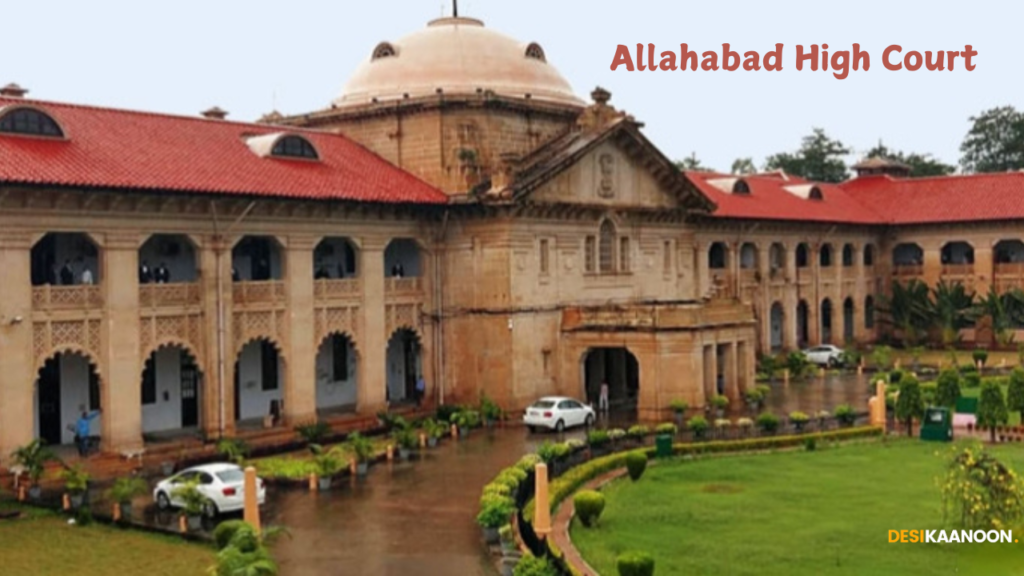Aastha Pareek
In a notable judgment, the Allahabad High Court brought to light a distressing issue in India’s criminal justice system: the tendency of trial judges to convict potentially innocent individuals, ostensibly influenced by career considerations. In Upendra @ Balveer v. State of Uttar Pradesh, the High Court, comprising Justices Siddharth and Syed Qamar Hasan Rizvi, overturned the conviction of Upendra, who had spent 13 years in prison before being granted bail. The case highlights the systemic pressures influencing judicial decision-making and raises questions about the ethical obligations of trial judges to uphold justice over personal advancement.
The trial stemmed from a tragic event in May 2009 when Upendra’s wife, Deepika, died from severe burns, reportedly under suspicious circumstances. The prosecution initially charged Upendra and his family members with dowry-related offenses and murder under Sections 498A, 304B, 316, and 302 of the Indian Penal Code. However, as the case proceeded, testimonies from key witnesses, including the victim’s own family members, suggested the possibility of an accidental death. These witnesses attested that Deepika, who reportedly suffered from hysteria, may have accidentally set herself ablaze while cooking.
Despite the inconsistencies in the prosecution’s case, the trial court convicted Upendra under Sections 302 (murder) and 316 (causing the death of an unborn child), sentencing him to life imprisonment. Notably, the trial court’s decision disregarded testimonies that contradicted the allegations of dowry harassment and instead relied on a misinterpretation of Section 106 of the Indian Evidence Act, which places the burden of proof on an individual to explain facts within their special knowledge.
The High Court underscored that Section 106 of the Indian Evidence Act should not absolve the prosecution of its duty to establish the accused’s guilt beyond a reasonable doubt. The burden of proof should only shift to the accused if the prosecution demonstrates substantial evidence of guilt. In this case, the prosecution’s failure to provide direct evidence linking Upendra to the alleged crime meant that the burden could not be shifted solely on the basis of his presence in the house at the time of the incident.
Justice Siddharth, delivering the judgment, expressed concern over the trial court’s approach. He noted that the conviction appeared to be driven more by a desire to avoid appellate scrutiny than by a commitment to delivering justice. This reflects an unsettling pattern in the judiciary, where fear of reversal on appeal may lead some judges to err on the side of conviction, particularly in cases involving severe offenses, thereby prioritizing career security over judicial impartiality.
The Allahabad High Court highlighted the absence of a structured framework for compensating those wrongfully convicted. Referring to Article 21 of the Indian Constitution, which guarantees protection of life and personal liberty, the court lamented that wrongful convictions devastate not only the accused but also their families, leading to psychological, social, and economic hardships. The judgment called for legislative reform to address the issues of wrongful prosecution and compensation, as recommended by the 277th Law Commission Report, which proposed a statutory framework for compensating victims of wrongful prosecution.
The High Court also emphasized that wrongful convictions are not isolated incidents but represent a broader crisis in India’s judicial system. Judges, often under pressure to conclude trials expediently and avoid reputational damage, may prioritize quick resolutions over thorough, evidence-based decisions. This judicial mindset compromises the principle of “innocent until proven guilty,” risking the freedom and reputations of numerous individuals.
The Allahabad High Court’s judgment underscores the pressing need for systemic reforms. Ensuring judicial accountability, revisiting the interpretation of evidentiary laws, and implementing a statutory compensation mechanism for the wrongfully accused are essential steps towards upholding justice. Moreover, judicial training that stresses impartiality over career-oriented decision-making could mitigate the risk of wrongful Convictions.

